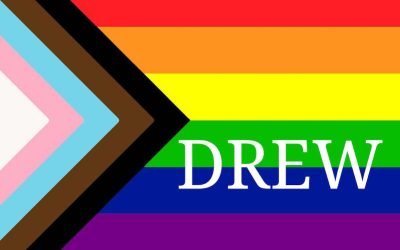As a student of history, I draw inspiration from the tenets of the early Pride Month initiatives rooted in the historical Stonewall Uprising, which proposed a commemorative month to “recognize the impact that lesbian, gay, bisexual, and transgender individuals have had on history locally, nationally, and internationally.” And engaging with the histories of Christian communities in particular, I see Pride Month as a resilient reminder and observable opportunity to celebrate the Pride histories and legacies that Christian faith communities across the globe have inherited. At the same time, Pride Month is also a demanding occasion to attempt to re-right the wrongs and harms that faith communities have done to LGBTIQ+ communities and individuals for centuries. This re-righting can be anchored by re-writing and re-storying the distinct histories of queer communities that are hitherto erased, marginalized, hereticized, and demonized by the ‘mainstream’ historical narratives which are controlled and orchestrated by Eurocentric colonial agencies and agendas. Hence, I believe that Pride as a celebration of queer resilience to hypocritical and hyper-heteronormative beliefs, laws, and mindsets is a crucial opportunity. We can reclaim the contributions that queer communities have made to the rejuvenation of our faith and belief-systems. Christianity has a long legacy and heritage of queer saints reshaping Christian beliefs by challenging the normatives of our theologies, rituals, doctrines, and practices. Remembering such a rich queer Christian heritage as part of our Pride is also a celebration of queer anger and agitation against the heteronormative ecclesial structures that perpetuate exclusion and violence based on sexual orientation and gender identities. Therefore, Pride is a celebration of the audacity that queer communities boldly and unapologetically embodied throughout the centuries in challenging those structures and thus enriching and expanding the space and meaning of Christian theologies.
The essential aims that we can discover in decolonial queer histories of Christianities are not only of embrace and celebration of divine queerness as well as queerness of faith communities, but also the imperative demand of a collective deep solidarity and committed allyship with the queer communities in their struggle for justice. In this regard, I believe that as a theological community we must take Pride Month as a symbolic opportunity to celebrate the Pride of our historical heritage of having educated and enlightened by countless queer individuals throughout Christian history. Perhaps commemorating Pride Month by holding an exhibition of the legacy of some of those queer saints every year would serve as a powerful teaching/learning opportunity to the world that is tormented by acts of hatred and horror against queer friends, family, and community members. This will certainly foster an affirming environment that nurtures more openness to confront Christian communities’ ignorance, prejudice, and hypocrisy that caused unhealable harm to millions of people based on their sexualities and gender identities. Such showcasing of queer Pride would enable the community to remember and re-story the institutionally and intentionally erased histories of LGBTIQ+ individuals and communities. It provides an opportunity to draw resources from Pride histories to dismantle discriminatory worldviews, practices, laws, policies, rituals, and social norms and thus combat prejudice, hatred and horror against queer communities and individuals in our contexts today and create revitalized faith, theology, and trustworthy community relationship.

